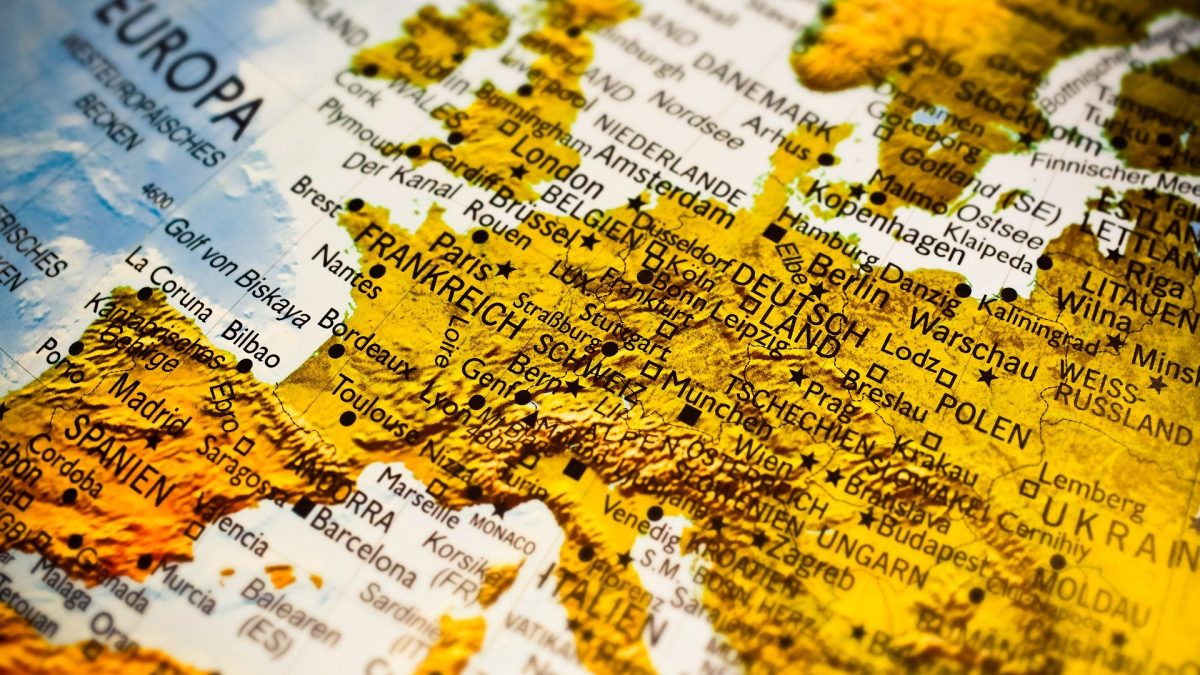
Interview with Mansi Dwivedi, President of the University of Edinburgh BAME Law Society
August 11, 2020
The Facebook Ad Boycott: an analysis of brands ‘hitting pause on hate’
August 12, 2020Keisha Green analyses current issues in shipping, trade and international relations.
The shipping industry plays an integral part of globalisation, facilitating trade worldwide. In the UK, it supports half a million jobs and contributes to £22.2 billion to the UK’s GDP. Globally, the industry supports approximately 1.6 million jobs and carries out 90% of world trade. But the outbreak of the coronavirus in November 2019 has had a significant impact on global supply chains, for which shipping is essential. The following will look at the impact that coronavirus and international relations are having on global trade, in addition to the possible role of AI.
Seafarers and the supply chain
Since the outbreak of the coronavirus, Maersk (the world’s largest shipping container company) has noted that shipping from east-to-west, and long-distance shipping, has been amongst the worst affected. Indeed, there has been a 14% increase in the number of vessels pulled. Typically, vessels are pulled when a shipping lane is underutilised. Overall, the World Trade Organization has forecast that import and export merchandise trade will decrease by 13-32% this year.
A key part of the shipping industry is the vessel crew, otherwise known as seafarers. As with any industry, the safety and wellbeing of employees is paramount. But with travel restrictions having been extended to seafarers, vessels were left stranded with around 400,000 seafarers remaining either at home or at sea. Not only did this delay the loading of cargo, preventing goods and commodities reaching their destination, but the travel restrictions also delayed the change of crews. This raised liability implications for captains of vessels. This is because captains could be held liable if concerns regarding fatigue were raised. Some seafarers have been exceeding the statutory limit of 11 months, with some seafarers having remained at sea for as long as 15 months.
As recently as June 2020, the United Nations called for seafarers to be designated as ‘key workers’. Similar calls were echoed in the UK earlier this year and, in March 2020, the UK government decided to designate seafarers as key workers. Although, for the desired outcome to be achieved, it is submitted that there would have to be a global consensus, given the international nature of their role. As of July, the list of some of the countries which have taken this step includes the US, UK, Denmark, Greece and the Philippines.
International relations and trade
- UK and China
In May 2020, in response to China’s amendment to Hong Kong’s constitutional law, the UK government announced, to the grievance of China, that it would offer residency and citizenship to eligible Hong Kong nationals. In June 2020, the British Prime Minister separately announced an intended strategy to reduce the UK’s reliance on imported Chinese goods. It was thought that these developments could adversely affect the likelihood and progress of a UK-Chinese trade agreement. Bearing in mind the UK’s pending departure from the EU following Brexit, significance has been placed upon the UK reaching an agreement with China, signalling the ‘golden era’ of development between the two countries.
China is the UK’s second largest importer of goods (second to Germany), importing around £46.9 billion worth of goods, which accounted for 9.3% of the UK’s total imports in 2018. The UK also receives significant direct investment from China in the field of technology, energy, transport, and research and development. Similarly, the UK also welcomes a greater number of Chinese students who attend UK universities than the rest of Europe combined. Following the UK’s response to Hong Kong’s constitutional arrangements, coupled with the ban of Huawei’s 5G products, international relations between the two countries have begun to sour. And, according to Andrew Cainey and Veerle Nouwens, when it comes to Chinese businesses “it is not always ‘just business’ ”. As a result, UK firms are understandably fearful of Chinese retaliation.
- US and China
Prior to the coronavirus outbreak, discussions were underway in November 2019 to phase out the trade ‘tariff war’ between the US and China. The tariff war, which began in July 2018 and escalated in August 2018, put a further strain on relations between the two countries, in addition to affecting their economies. In the US, the direct costs of the tariffs were passed onto to consumers, with the annual average household expenditure increasing by $600. In addition to this, the automotive, technology and agricultural industries were amongst the worst affected. In China, a 25% fall in exports to the US meant that exporters were amongst the worst affected.
The ability of the respective economies to recover from the stress inflicted by the coronavirus will likely be influenced by deteriorating relations. In July 2020, the Trump administration barred 11 Chinese companies from purchasing American products and technology unless they possessed a special licence, and also implemented a ban on Huawei’s 5G products. In retaliation, China announced sanctions on three Republican lawmakers. If the ‘tech cold war’ were to continue, it has the potential to cost the industry more than $3.5 trillion over the next five years; stemming from disruption to demand, supply chain disturbances and divided industry standards.
Optimisation using AI?
The pandemic has highlighted several chinks in the global supply chain. But it could be possible to incorporate AI at every stage of the chain to improve capacity and functionality. Indeed, the use of AI has already been adopted and implemented in the field of logistics. For instance, DHL and FedEx use self-driving pallet trucks in their warehouses. In the shipping industry, AI could be used in connection with unmanned vessels (although fully automated vessels are not expected to appear before 2035) and navigation systems (e.g. for route optimisation). However, a study conducted by Oxford University estimated that, over the next 20 years, the US maritime sector could lose 47% of high and low-skilled jobs. Unsurprisingly, a large portion of seafarers responded in a survey that they were anxious over job losses to AI and automation.
The need to meet global demand, together with delays to supply chains owing to the coronavirus, might have forced the issue of automation. And, given the severity and longevity of the pandemic, together with the potential for reoccurrence, it might become a matter of necessity to implement AI. Indeed, in the opinion of Mikael Mäkinen, President, Marine at Rolls-Royce, “autonomous shipping is the future of the maritime industry”.
By Keisha Green





